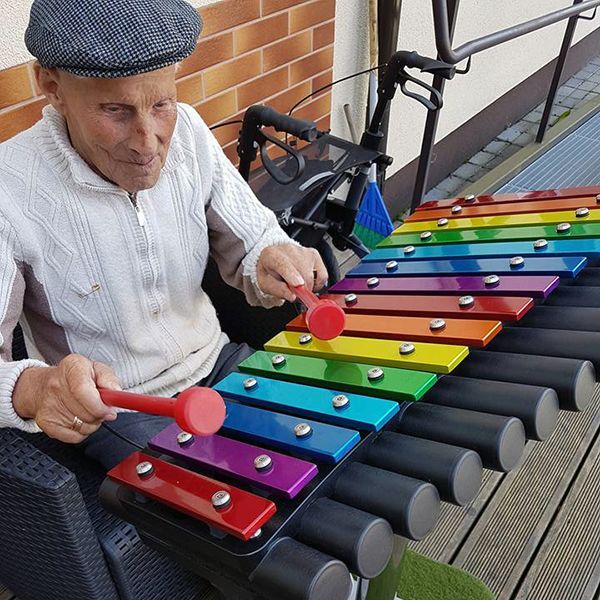
Let's Jam
Simply enter your name, email address, and click subscribe to get the latest product updates.
By clicking "Subscribe", you confirm that you have read and accepted our Terms and Conditions, Privacy Policy and Cookie Policy.
Autism is a lifelong developmental disability that affects how people perceive the world and interact with others. A person with autism experiences their surroundings differently from others, which can impact their communication skills and their ability to relate to others. Autism is a spectrum condition, meaning that while all autistic people share certain characteristics, they can experience the condition in different ways. People from all nationalities and cultural, religious, and social backgrounds can have autism, although it appears to affect more men than women. In 2020, the CDC determined that approximately 1 in 54 children are diagnosed with an autism spectrum disorder (ASD), and an estimated one-third of people with autism are nonverbal.
World Autism Awareness Week and World Autism Awareness Day (April 2) aims to put a spotlight on the hurdles that people with autism and others living with autism face every day. Helping us all become more aware of the characteristics of people with this condition and how all of us can do better to increase our own understanding and promote kindness.
This week normally sees a planned number of activities and initiatives, all aimed at spreading awareness and increasing acceptance of those living with Autism. Schools normally have an abundance of lessons planned to focus on Autism, on being kind, on learning about how we’re the same and how we’re different, and on generally better-understanding autism.
However, for reasons that do not need to be explained (COVID-19), many of those plans will now have to be put on hold. Yet, with the changes we’ve already seen in recent weeks in society, it’s now more important than ever that we continue to raise awareness about autism and find new ways to support autistic people and their families.
To mark Autism Awareness Week, we have chosen to share our newest Case Study with you – a wonderful new music garden and play area created in the Morgan Autism Center in San Jose California. This bright and colorful outdoor music garden was designed and created by Specified Play Equipment Company™ (SPEC) who worked alongside Executive Director of the Morgan Autism Center Brad Boardman, who wanted to create a musical garden and playspace following extensive research into the benefits of music and how it can 'open up an alternate avenue for communication.'
This echoes the research we carried out when writing our White Paper: Sounds and The Spectrum: The Benefits of Music for Autistic Children.